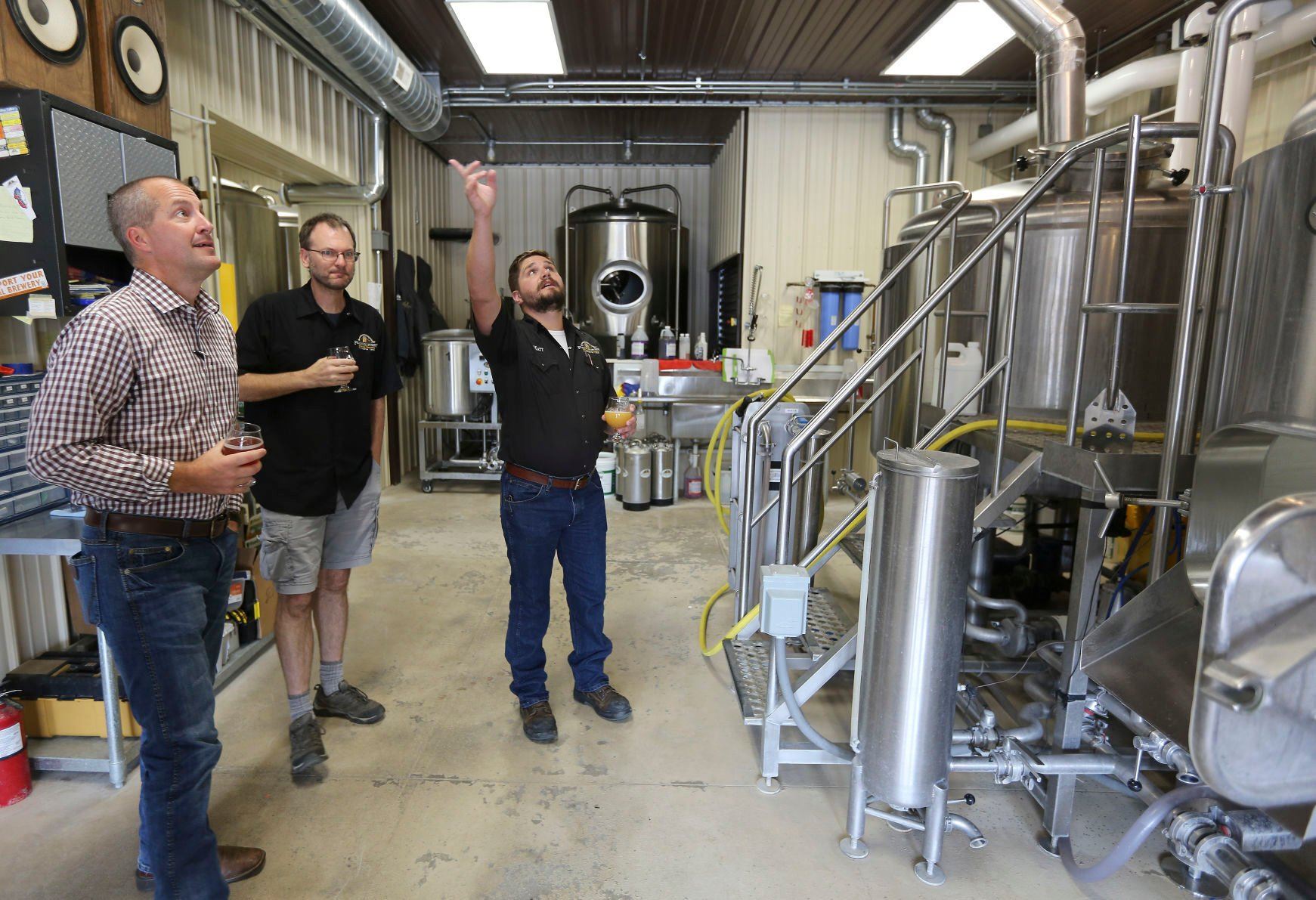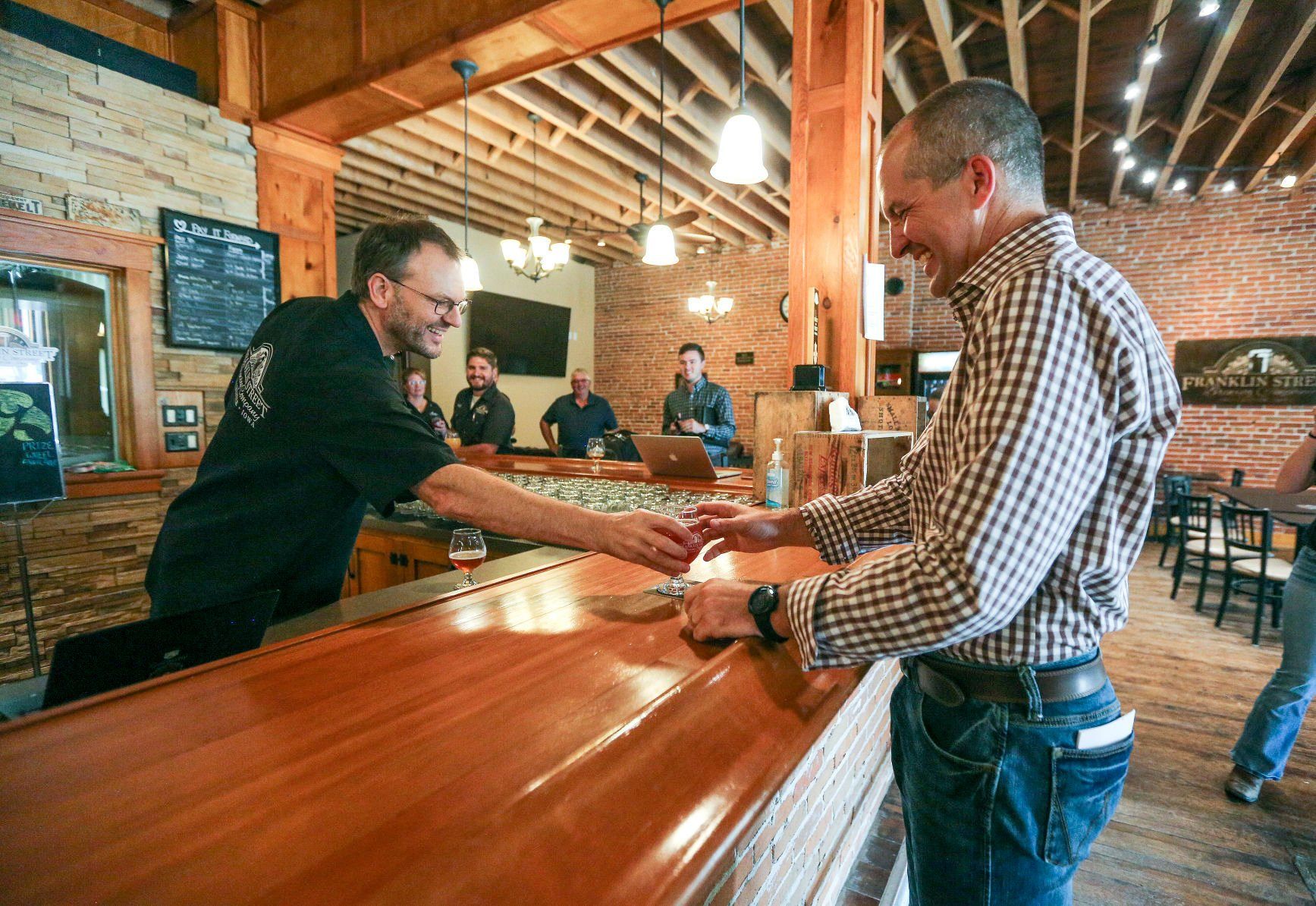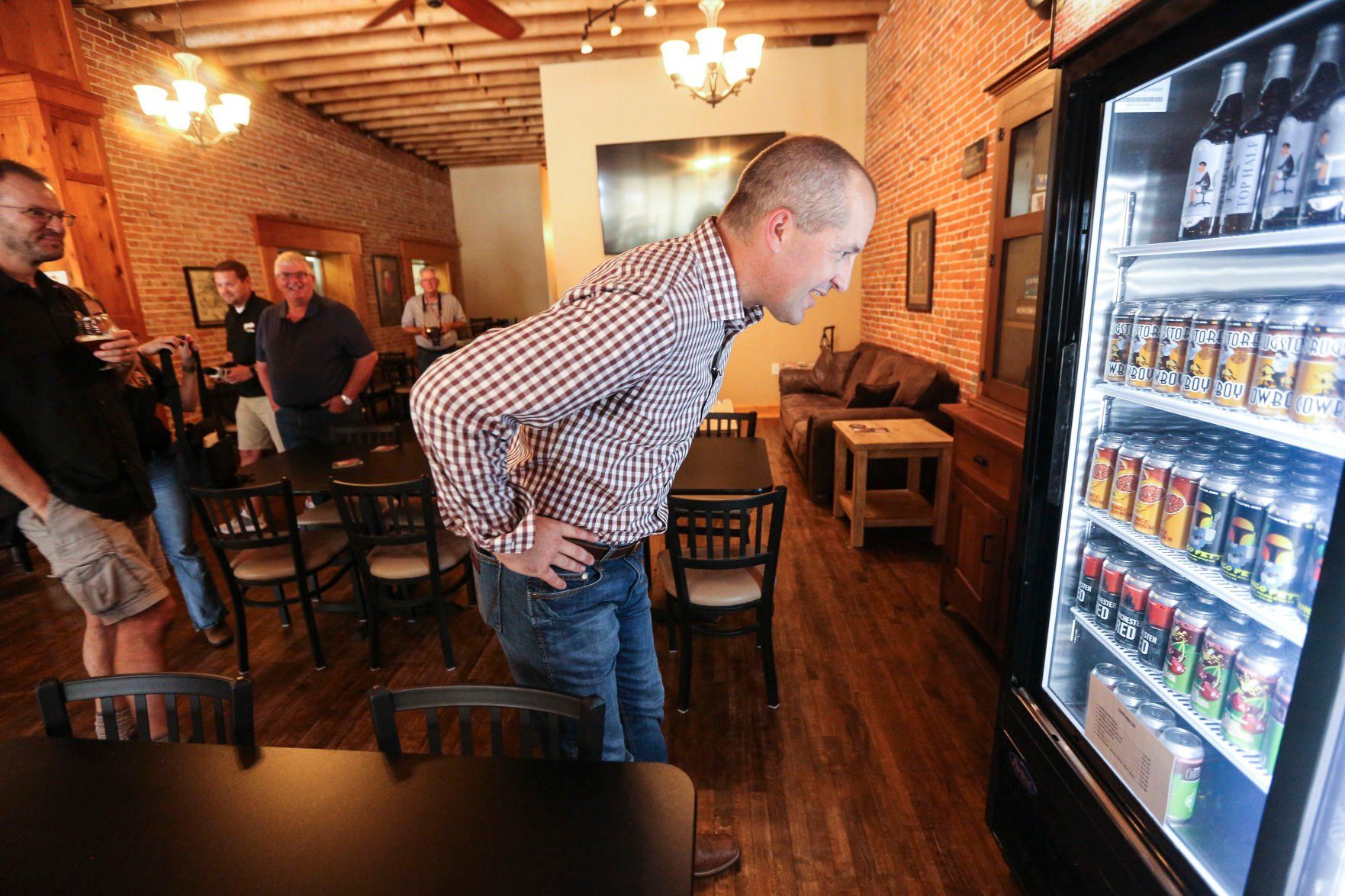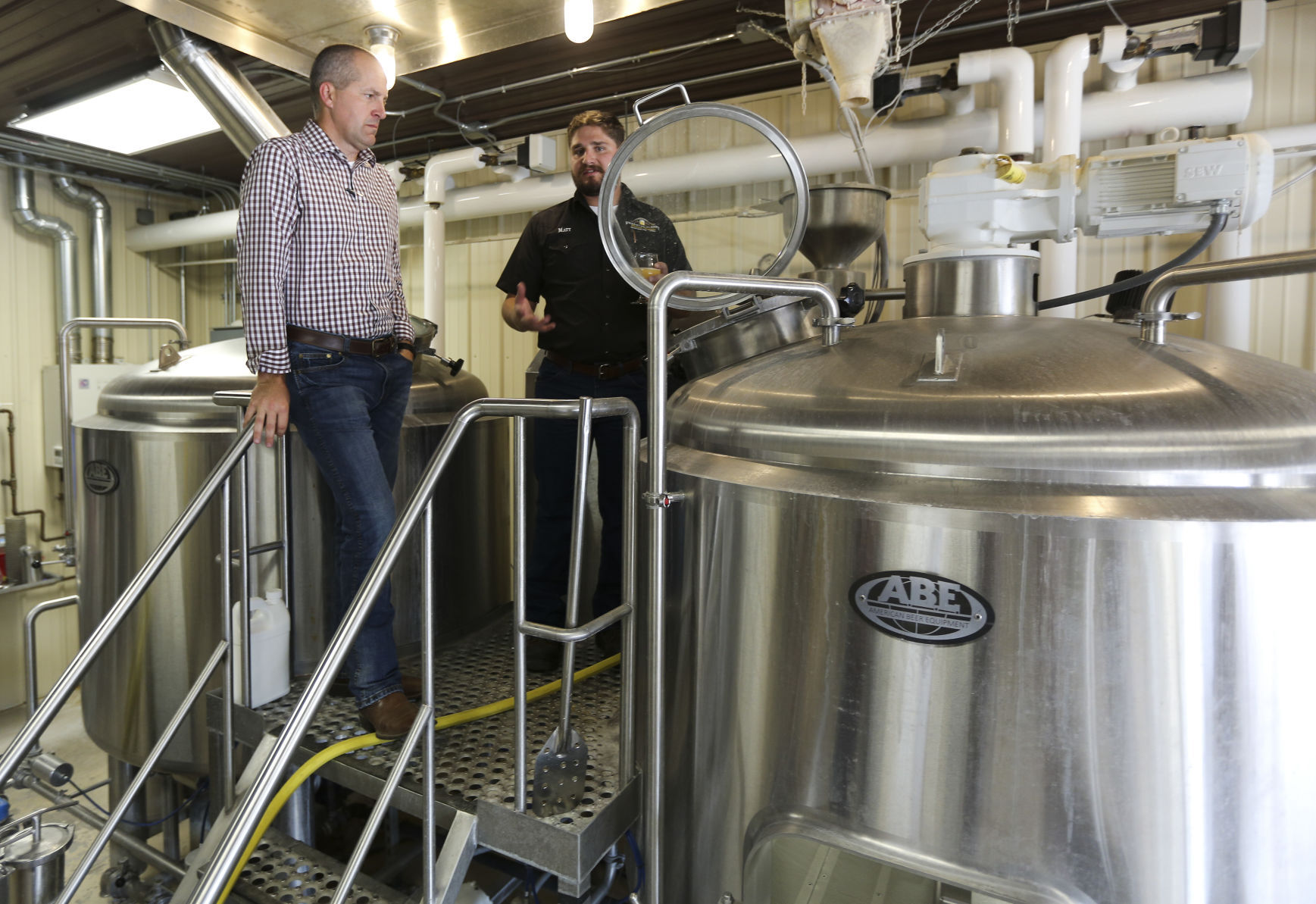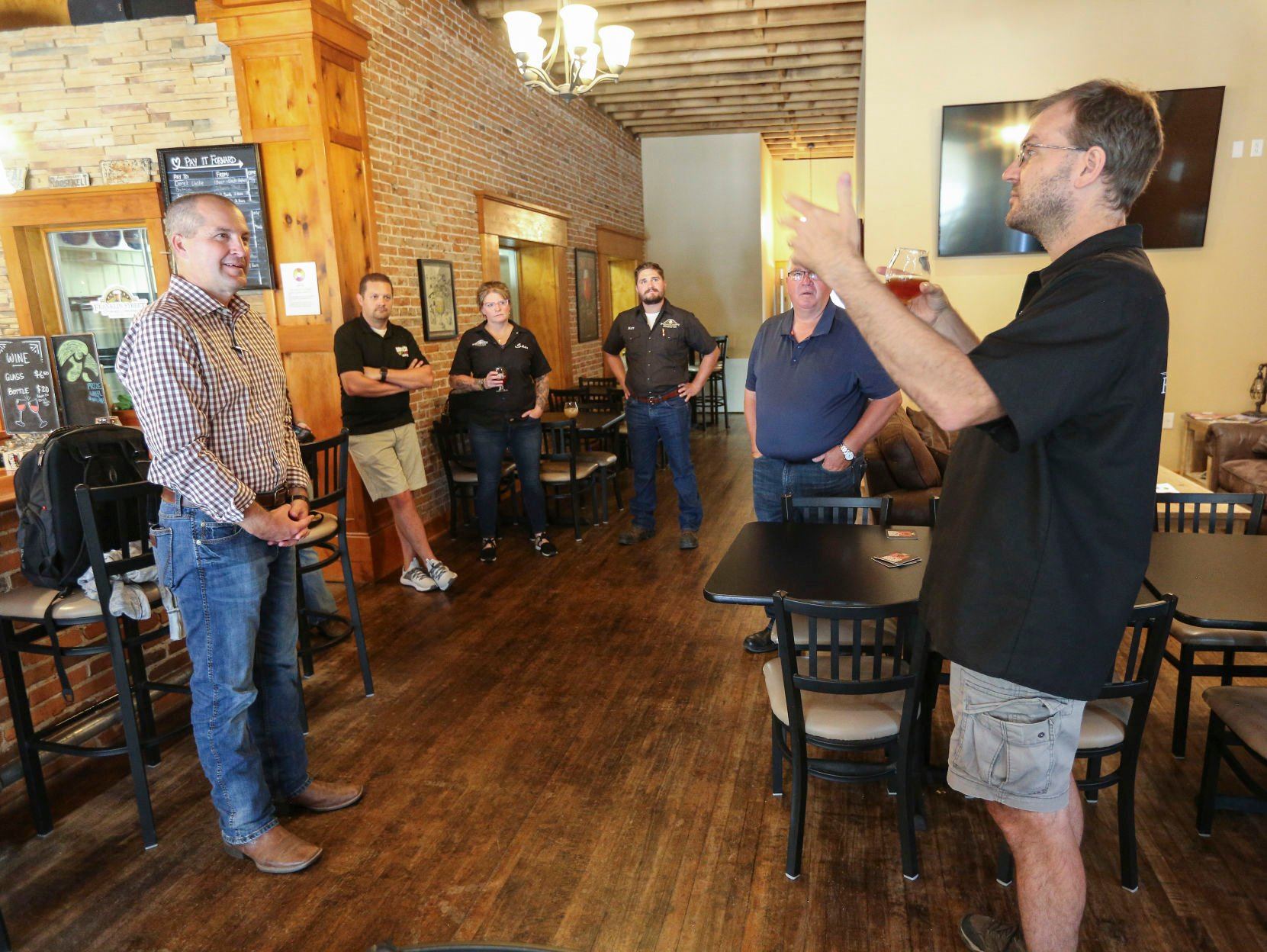MANCHESTER, Iowa — While visiting a Manchester brewery, Iowa’s secretary of agriculture touted a state grant program supporting what he termed “value-added” agriculture, as well as the importance of crop diversification to support Iowa businesses like breweries.
Mike Naig toured Franklin Street Brewing Co. as part of his annual tour of the state’s 99 counties, viewing the facility’s brewing, fermenting and milling equipment. State Sen. Dan Zumbach, R-Ryan, also attended the tour.
In March, Franklin Street Brewing Co. received a $25,000 Choose Iowa grant from Iowa Department of Agriculture and Land Stewardship, which will be used to purchase and install a canning line, as well as to purchase Iowa-grown hops and grains.
Brewmaster Matt Knutson said Franklin Street currently contracts with Backpocket Brewing to can some of its beers. Installing its own canning line, which Franklin Street aims to do this winter, will allow the company to diversify its canned offerings.
“We’d like to can a lot more of the things we have available,” said co-owner Kyle Sands, estimating that canned beers currently make up about 25% of the brewery’s sales. “We’d love to increase our percentage in cans and get our cans out in a larger area.”
Naig praised the expansion plan.
“This is exactly the point of this value-added grant program,” he said. “It’s the thing that takes you to the next level. It’s the thing that starts to drive more volume. It’s the thing that allows you to expand your capacity … and it all goes back to getting those Iowa products moving through the area.”
Sands said the business aims to produce a beer made from all- Iowa products, including hops and grains raised in the state, an idea Naig endorsed.
“As we look at more cover crops and double cropping, I think there is an opportunity to do some of that,” Naig said. “We’re growing a lot of rye, and that might be one of the first potentials and maybe sorghum. Barley’s a little tougher for us just yet, but there’s opportunity there.”
Naig and Zumbach both noted that the passage of a farm bill providing insurance for double cropping — the harvesting of two crops from the same field in a given year — could be a key factor in protecting farmers’ investments and encouraging them to diversify their crops.
Looking ahead to the upcoming harvest season, Naig said demand and prices are high, but high input costs continue to “stress” farmers, particularly livestock producers.
“We look across the ag landscape today, and we would say that prices are pretty darn good, across the board, but that’s only half the story,” he said.


